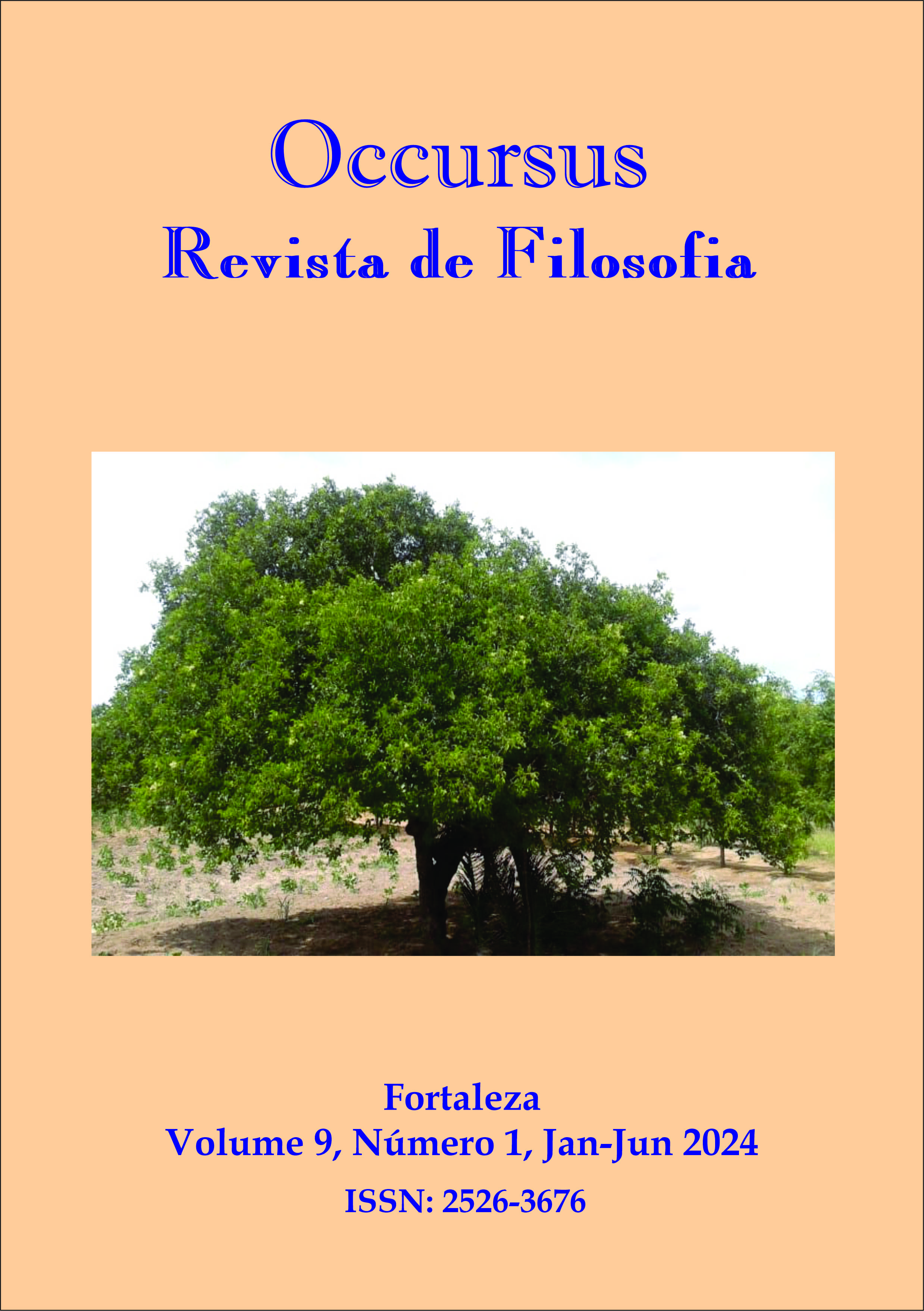Kierkegaard by Sartre: the trans-historical
DOI:
https://doi.org/10.52521/occursus.v9i1.13260Keywords:
Sartre. Kierkegaard. Universal singular. History. Trans-historical.Abstract
This research aims to highlight the influence that Kierkegaard had on Sartre's existentialism through an analysis of what trans-historical is. To this end, we examined the text The Singular Universal, which is an article by Sartre that is not widely disseminated, despite having been presented in the famous colloquium - Kierkegaard Vivo. It is worth highlighting that the concept that will be addressed here is located on the same theoretical horizon as one of the themes most sensitive to the existentialist philosopher's theses, namely, History. Furthermore, in the aforementioned writing, it is evident that Sartre, when recording the Dane's philosophy, discusses the notion of understanding to criticize the interpretation that reduces the ontophenomenological character of the freedom inherent to the human condition, which as a category of singular universal, is found in a perspective rooted in trans-historical, defined as that which can be in History, but which cannot be determined by the objectification of knowledge.
References
AUMANN, A. Sartre’s View of Kierkegaard as Transhistorical Man. Journal of Philosophical Research, nº 78, 2006. Disponível em: https://commons.nmu.edu/cgi/. Acesso em 04 jan. 2023.
BORNHEIM, G. A. Sartre: metafísica e existencialismo. 3. ed. São Paulo: Perspectiva, 2011.
HOSTE, V. A constituição da angústia em Sartre. Sofia Eletrônica, ES, p. 445-462, 2016.
KIERKEGAARD. Pós-escrito às migalhas filosóficas. 1. ed. Vol. 1, Petrópolis, RJ: Vozes, 2013.
KIERKEGAARD. Temor e Tremor. Tradução de Maria M. José. São Paulo: Abril Cultural, 1979.
PAULA, M. O tema da subjetividade e os limites da história: uma leitura de Sartre a partir de suas influências kierkegaardianas. Ekstasis, Rio de Janeiro, v. 7, n. 2, 2018.
PERDIGÃO, P. Existência e Liberdade. Porto Alegre, RS: L&PM, 1995.
PEREIRA, D. Sartre Fenomenólogo. Estudos e pesquisas em psicologia - UERJ, Rio de Janeiro, 2014.
PRATES, M. Do singular ao singular: finitude, trans-historicidade e compreensão em Sartre. Griot: Revista de Filosofia [S. l.], BA. V. 21, n. 3, pp. 268–282, 2021.
PRATES, M. Do singular ao universal: totalização, pluralidade e liberdade na ideia de história em Sartre. Guairacá Revista de Filosofia, PR, v. 35, n. 1, pp. 1-18, 2019.
REYNOLDS, J. Existencialismo. 1. ed. Petrópolis, RJ: Vozes, 2013. (Coleção Pensamento Moderno).
SASS, S. A noção de compreensão em Sartre. Sapere Aude, MG, v. 5, p. 223-240, 2014.
SARTRE, J. A Esperança agora. Trad. Maria Luiza Borges. Rio de Janeiro: Nova Fronteira, 1992.
SARTRE. Crítica da razão dialética: precedido por questões de método. Tradução de Guilherme F. Teixeira. 2. ed. Rio de Janeiro: DP&A, 2015.
SARTRE. El universal singular in Kierkegaard Vivo - Coloquio organizado por la Unesco en París. Traducción de Andrés-Pedro Sánchez. Madrid: Alianza Editorial. 1968, p. 17-49.
SARTRE. Existencialismo é um Humanismo. Trad. Rita Guedes. São Paulo: Nova Cultural, 1987.
SARTRE. O Ser e o Nada: ensaio de ontologia fenomenológica. Trad. Paulo Perdigão. Petrópolis, RJ: Vozes, 2009.
Downloads
Published
How to Cite
Issue
Section
License
Copyright (c) 2024 Nicolau Araújo

This work is licensed under a Creative Commons Attribution 4.0 International License.




